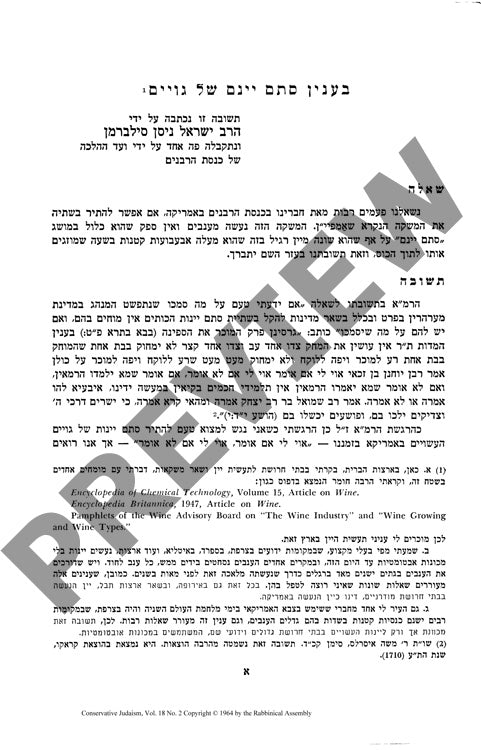Binyan Stam Yeinam Shel Goyim
Couldn't load pickup availability
This responsum examines the halakhic permissibility of consuming *stam yeinam* (gentile wine) produced in modern American industrial facilities, with particular attention to champagne and other wine products manufactured by non-Jews. The methodology employed includes empirical investigation of contemporary wine production processes, analysis of classical halakhic sources, and examination of historical precedents regarding rabbinic prohibitions. The study reveals that modern wine production utilizes fully automated machinery with minimal direct human contact, fundamentally altering the traditional concerns underlying the rabbinic prohibition. Key findings demonstrate that: (1) contemporary non-Jews lack knowledge of ancient libation practices (*nisukh*), rendering concerns about idolatrous wine obsolete; (2) automated production processes eliminate problematic direct contact with wine; (3) pasteurization procedures classify modern wine as *yayin mevushal* (cooked wine), which traditionally carries reduced halakhic restrictions; and (4) Catholics use specially designated wines for liturgical purposes, distinct from commercially available products. The analysis draws upon precedents where similar prohibitions regarding gentile bread (*pat*), oil (*shemen*), and cooked foods (*bishulei goyim*) were relaxed due to changed circumstances and practical considerations. The responsum concludes that *stam yeinam* produced in modern industrial facilities may be permitted for consumption, while emphasizing preference for Israeli wines for ritual purposes and noting that these permissions do not apply during Passover due to separate *chametz* concerns.

More Information
-
Physical Description
-
Publication Information
Published 1964
ISBN
-
Publication Credits
Yisra'el Silberman

